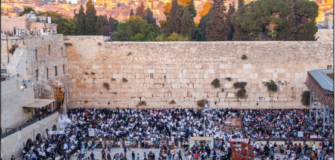Israeli Fashion Designers Forging On
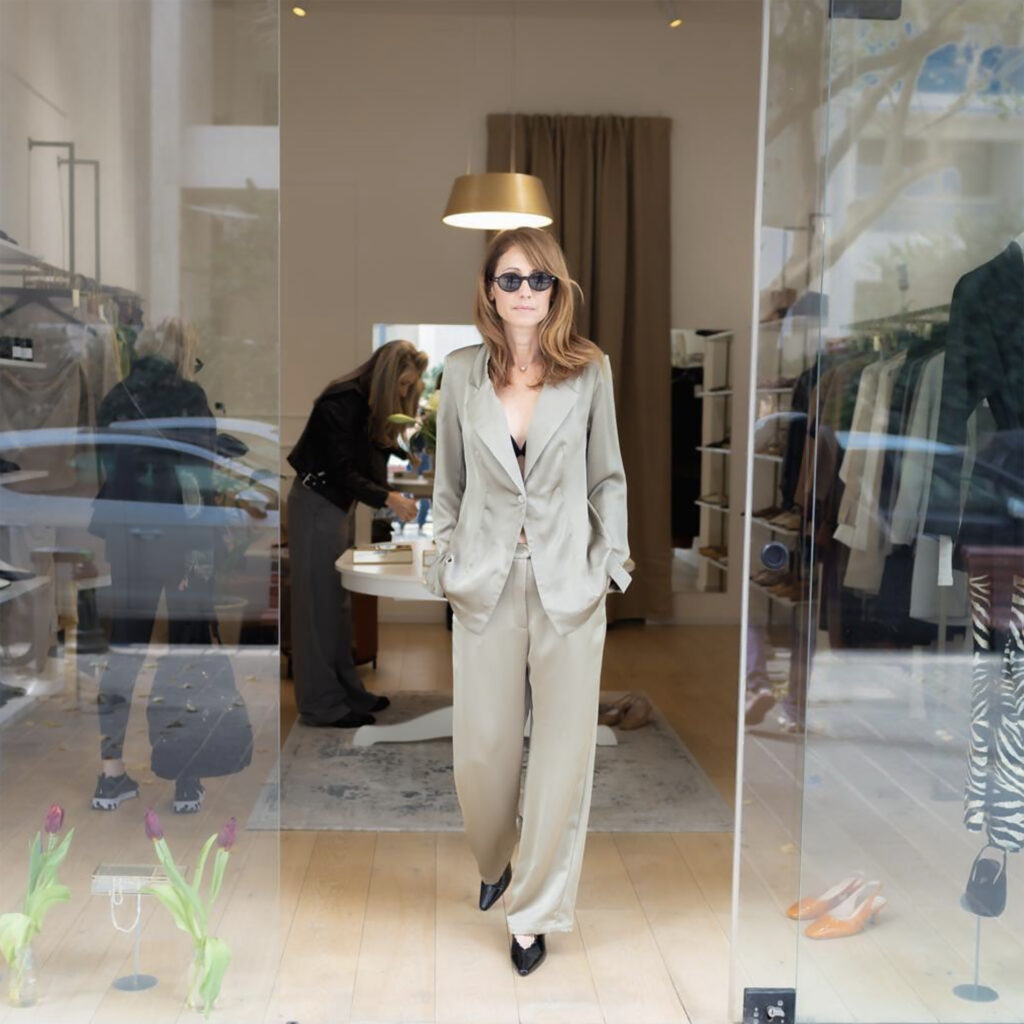

As we enter the sixth month of the Israel-Hamas war the volunteering has not stopped. The donations have not stopped. The prayers, rallies, and uniting of the Jewish people have not stopped. And, most remarkable of all, Israeli businesses have not stopped. In the immediate days following October 7th, virtually all Israeli business owners across industries were in a deep state of shock, fear, grief and uncertainty, but as the days turned to weeks and the weeks to months, they realized they needed to carry on. It is the Israeli way, and, frankly, the only way.
As a continuation of my Stitched Together Project, meet five Israeli designers rising from the ashes and forging a new path.
Galit Noy – Amria
Amria is a contemporary shoe brand founded in 2017 by fashion, design, beauty lover and former lawyer – Galit Noy. The decision to establish Amria stemmed from the difficulty she experienced as a lawyer in finding chic, up-to-date, and comfortable shoes that allowed her to run from various meetings and trials without compromising on beauty and design.
“Times are very difficult now in Israel. Since I always produce my collection six months before the current season, I actually had nothing to do when the war began. The entire collection was in storage. It was very difficult at the beginning because virtually every store closed. Two weeks later, we opened our Tel Aviv boutique. First for only 4 hours a day, then gradually we increased the hours. Women are buying but the atmosphere is still very sad.” – Galit
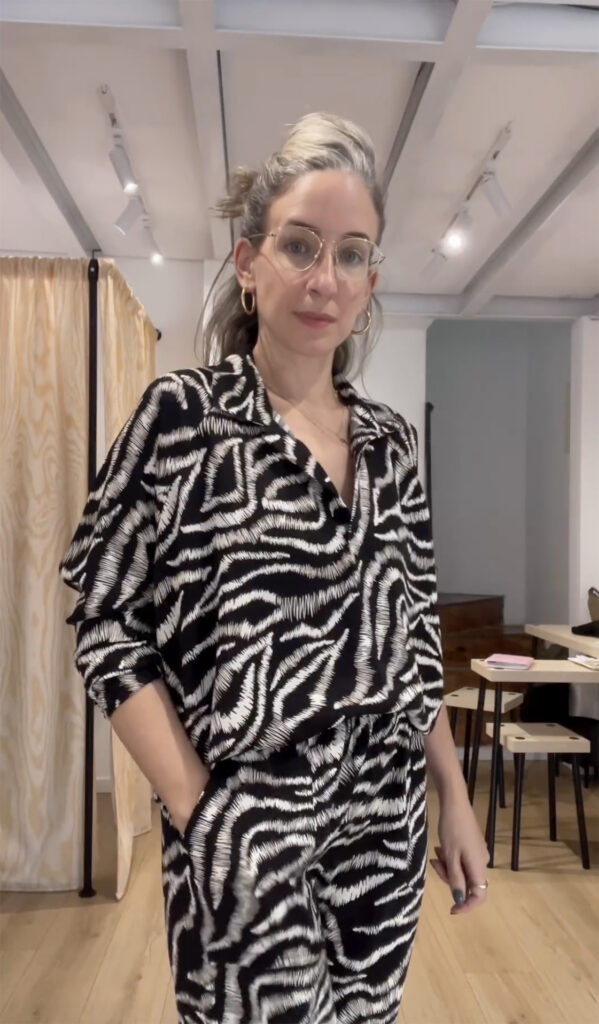
Studio V is a colorful womenswear brand that puts the customer first. Vered and her team offer full customization of pieces, down to the color and fabric, in addition to the ready-made pieces available for purchase in her Ramat Gan boutique. Studio V also offers modern and sleek bridal looks.
“Since this all began, it has changed people’s behavior. People have lost their loved ones, lost their jobs, canceled weddings, lost their homes and lost a basic sense of security. Fashion is the last thing on people’s minds. So, except for a few orders here and there, business was not really working. Some orders that were placed before the war are still waiting to be picked up.
The month of November saw online sales improve slightly – people are yearning to feel “normal,” if only for a moment. Now, it seems to be getting better. Some have even started wedding planning again and understand that this war will take quite a bit of time.
I have really been internalizing my environment. Most of my work these days is bridal – specifically the popular “second look” after the ceremony. I believe the chic simplicity and unfussy nature of the designs, coupled with the reasonable price is why it’s currently popular. Price seems to be a bigger issue now than ever before, which is why I have developed new designs to accommodate my customers’ wallets and always keep the prices fair”. – Vered
Noa Tarlovsky – Ofnat Bracha
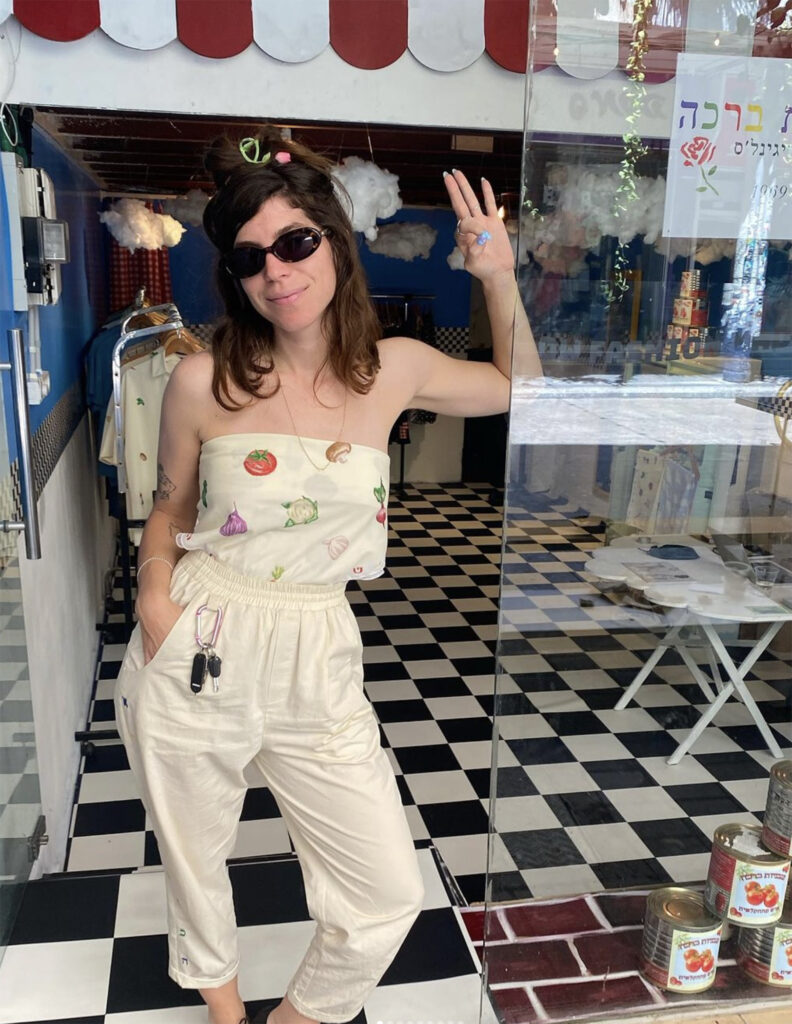
The vibes at Ofnat Bracha are fun, light, campy and quirky. Noa Tarlovsky has curated a feeling of an endless Tuscan summer with her brand. What started as a boutique in 1969 by Noa’s grandparents, Ofnat and Yaacob Tarlovsky as a home away from home for the Eastern European immigrants in their town. Noa revived the brand in 2020 to pay homage to her grandmother’s easy and colorful style while putting her joyful light spin on all the designs.
“The first couple of months were really tough. Everyone’s spirits were low and all anyone had on their minds was volunteering and keeping their eyes glued to the news. I couldn’t do any domestic manufacturing since the war started. Many business owners have been drafted and unfortunately, their businesses have been frozen in time, so to speak. The small stipend they received from the government isn’t enough and they’re all struggling.
Also, because people are spending less money on luxuries and going out less, this is hurting businesses as well. What is giving us comfort in these times is the strong sentiment to buy Israeli goods and support small businesses. I’ve been packaging my orders with yellow ribbon – the color long associated with prisoners of war.
Before the war, I was about to launch my eveningwear brand. Then the war broke out and the last thing on anyone’s mind was getting married and going out. However, I decided to carry on because people still needed beauty in their lives. It’s so important for creators to keep coming together and creating.” – Noa
Eshed “Esh” Hadaya – Hadaya
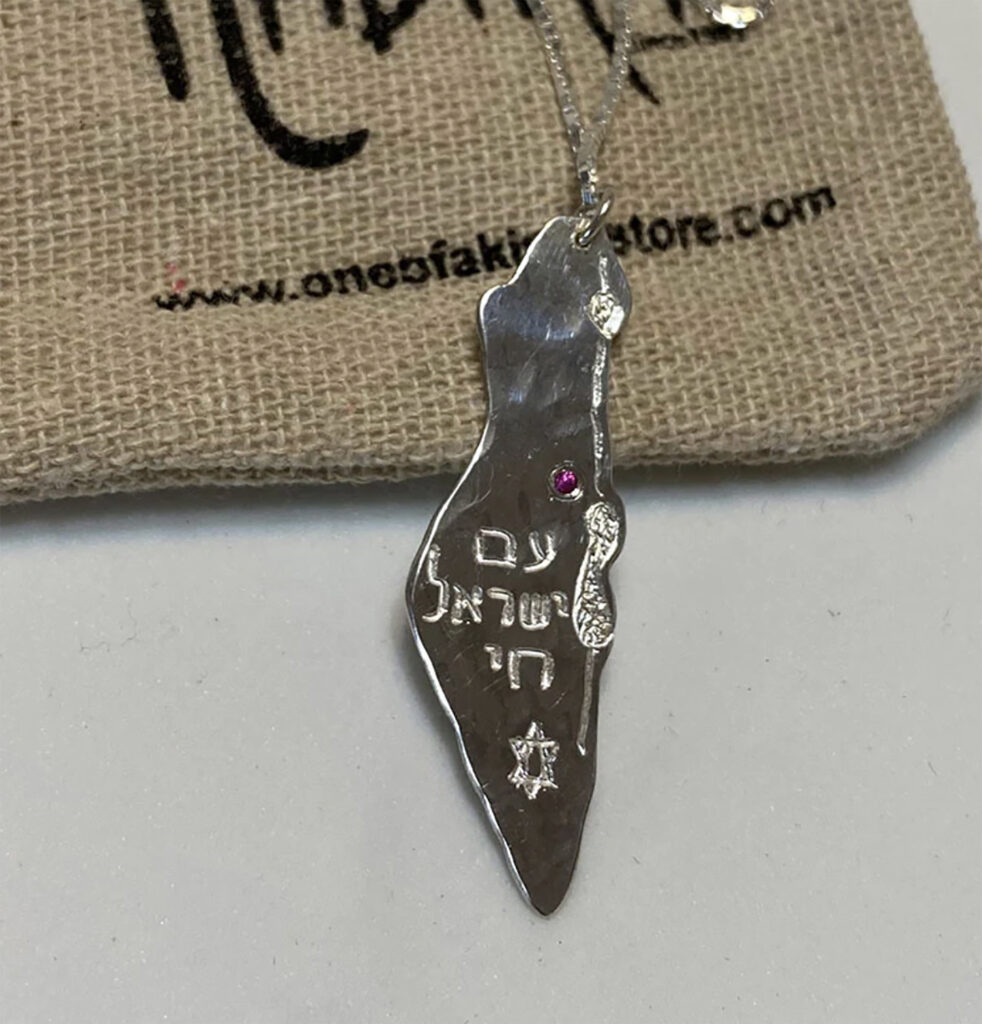
A family business started in 1983 by Esh’s father, Baruch, Hadaya has become synonymous with young women on their gap and seminary years. Look on the wrist, neck or finger of any girl studying from abroad and there is a good chance she will be proudly wearing her Hadaya. What makes these handmade hammered silver and gold pieces extra special is the custom engraving that can be anything from a biblical verse to a modern Israeli saying. (I have the bagel necklace and chose to have it engraved with the famous line from Yehuda HaLevi’s poem, “My heart is in the East and I am at the edge of the West”).
“Most of our usual income is gone since there’s been a significant drop in in-person shopping, much like the first months of Covid. We are trying to adapt our business by focusing more attention on our online sales in hopes that it will keep the business afloat long enough until the economy recovers again. The one thing we have seen is the rise of our Israel Map necklace and the “Am Yisrael Chai.” – Esh
Sharon Rates – Bisou Maman
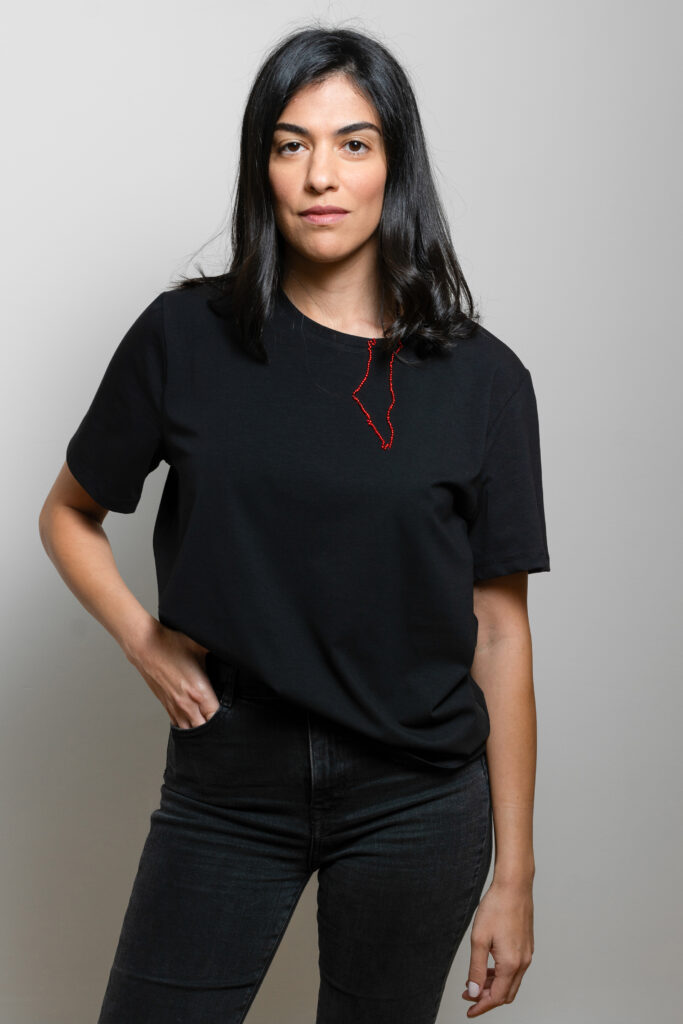
Bisou Maman is a modern womenswear brand that emphasizes classic wardrobe staples and contemporary silhouettes. The brand’s French name which translates to, “A Kiss for Mom” is an homage to Sharon’s own mother who whispered those words to her at bedtime every night. Her mother’s thoughtful and high-quality clothing drew Sharon into the world of fashion at an early age.
“Since the beginning of the war, the situation in Israel has been difficult and we are all very sad. It is very difficult to adapt our business to a time of war. In the first weeks, no one thought about leisure and buying clothes. In addition, the economic situation of households is challenging now, which directly affects people’s ability to buy and consume. Little by little, we are beginning to feel an improvement in the national mood and the desire to renew with new clothes. Bisou Maman is experiencing a significant impact on the monthly flow of goods, and I am trying my best to keep my head above water, all while continuing to create and provide value to my customers. Especially and precisely in these difficult times.
A few weeks after the beginning of the war, I was inspired to create something that symbolizes this great pain. I took a black shirt that I designed thinking that the black color that symbolizes grief could form the basis for my creation. During the process, I remembered my mother’s funeral, and the moment when my shirt was torn, as is the Jewish mourning custom.
I wanted to express the collective mourning that fell on our Land of Israel and mark the map of Israel in the exact place where my shirt was torn on the day of the funeral, and for so many other families who lost their loved ones on Black Shabbat.
The shirt that I designed symbolizes my identification as a designer with the families of the murdered, the families of the abducted, the soldiers who were killed, and the wounded in body and soul. This piece has garnered interest both among my customers and peers in the fashion industry. I was recently contacted by the fashion archive of the Shenkar School of Design so that the shirt can be included in their large historical clothing archive.
I would be very grateful if you decide to purchase the shirt. Support and identification with the State of Israel and the Jewish people are so important these days when anti-Semitism rears its head everywhere in the world.” – Sharon























